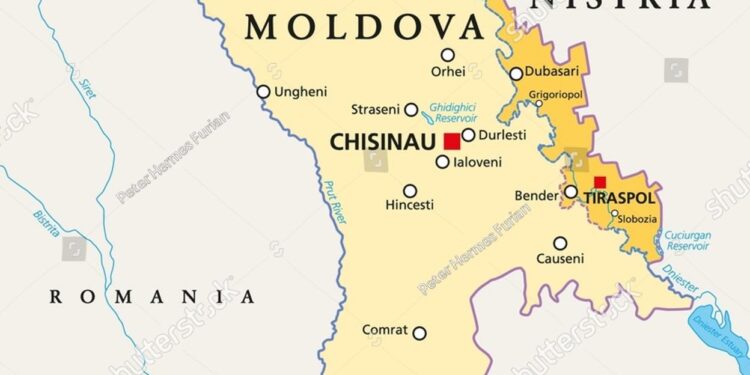Moldova’s journey towards European Union membership has become a focal point of geopolitical and economic discussion in recent years. As the country navigates a complex landscape marked by internal reforms, regional security concerns, and international diplomacy, the European Parliament continues to play a critical role in shaping Moldova’s path forward. This article examines the key challenges facing Moldova in its bid to join the EU, the strides it has made in addressing these issues, and how ongoing support from European institutions is influencing its progress amid an increasingly uncertain regional environment.
Moldova Faces Economic and Political Hurdles on Road to EU Integration
The path to European Union membership remains fraught with significant economic and political challenges for Moldova. Persistent issues such as widespread corruption, judicial inefficiencies, and a fragile banking sector continue to undermine investor confidence. Despite recent reforms aimed at stabilizing the financial landscape, economic growth is hampered by dependence on remittances and limited industrial diversification. Additionally, geopolitical tensions in the region complicate Moldova’s foreign policy alignment, creating a delicate balancing act between Eastern influences and Western aspirations.
Key obstacles currently faced by Moldova include:
- Strengthening the rule of law and anti-corruption frameworks
- Enhancing energy independence and infrastructure modernization
- Improving governance transparency and public sector accountability
- Adopting EU regulatory standards across all sectors
| Sector | Current Status | EU Benchmark |
|---|---|---|
| Judicial System | Fragmented & under reform | Independent & efficient |
| Economic Growth | 3.5% annual average | 5%+ sustainably |
| Energy Supply | Highly import-dependent | Self-sufficient & green |
| Anti-Corruption Measures | Increasing efforts, uneven results | Robust and transparent |
European Parliament Urges Strengthened Anti-Corruption Measures and Judicial Reform
The European Parliament has intensified its call for decisive action in Moldova’s fight against corruption and the overhaul of its judicial system. Lawmakers highlighted persistent challenges such as political interference in court decisions and inefficient anti-corruption mechanisms, stressing that these issues undermine public trust and hinder the country’s EU integration prospects. The Parliament urged Moldovan authorities to implement clear, transparent reforms aimed at safeguarding judicial independence and ensuring accountability at all levels of government.
Key recommendations include:
- Establishing an autonomous anti-corruption agency with adequate investigative powers
- Reforming the appointment process of judges to eliminate political bias
- Enhancing transparency in public procurement and asset declarations
- Introducing robust whistleblower protection laws
A recent European Parliament report provides a comparative overview of reform benchmarks and Moldova’s current standings:
| Reform Area | Status | EP Recommendation |
|---|---|---|
| Judicial Independence | Moderate Progress | Complete vetting of judges |
| Anti-Corruption Enforcement | Limited Effectiveness | Create autonomous authority |
| Transparency Measures | Partial Implementation | Mandatory public disclosure |
| Whistleblower Protections | Minimal | Introduce legal safeguards |
Recommendations Focus on Energy Security and Boosting Democratic Institutions
The European Parliament highlights the critical need for Moldova to strengthen its energy independence amid ongoing regional instability. Emphasis is placed on diversifying energy sources to reduce reliance on external powers, with special attention to enhancing renewable energy infrastructure and cross-border energy cooperation. These measures aim to ensure a stable energy supply, which is paramount for the country’s economic resilience and sustainable development.
Simultaneously, reinforcing democratic institutions remains a cornerstone of Moldova’s EU integration process. Priorities include transparent governance, judicial reform, and the empowerment of civil society. The recommendations encourage:
- Enhancing anti-corruption frameworks to build public trust
- Supporting independent media and freedom of expression
- Promoting citizen participation in policymaking
| Focus Area | Key Recommendation | Expected Impact |
|---|---|---|
| Energy Security | Diversify energy imports and boost renewables | Reduced external dependency |
| Judicial Reform | Strengthen independence and transparency | Improved rule of law |
| Civil Society | Expand engagement and media freedom | Enhanced democratic participation |
Concluding Remarks
As Moldova continues its complex journey towards European Union membership, the path remains marked by significant challenges-ranging from economic reforms to strengthening democratic institutions and addressing corruption. Yet, the progress made thus far underscores a resilient commitment to aligning with EU standards and values. The European Parliament’s sustained engagement signals a pivotal partnership that could shape Moldova’s future integration into the European community. Moving forward, the balance between overcoming internal obstacles and garnering external support will be crucial in determining how swiftly and successfully Moldova can realize its European aspirations.















